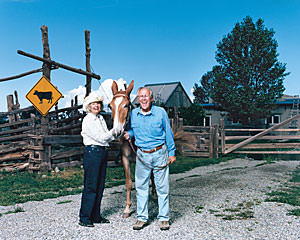Rumsfeld Disowns the War
The former defense secretary graces the pages of October's GQ (of all places) to make some bold assertions, claiming he was not a driving force behind the Iraq war and that he warned the president of many of the problems that have come to pass.
The former defense secretary graces the pages of October’s GQ (of all places) to make some bold assertions, claiming he was not a driving force behind the Iraq war and that he warned the president of many of the problems that have come to pass.
There are many gems in the lengthy interview. Asked whether he misses the president, for example, Rumsfeld replies simply: “Um, no.”
Your support matters…GQ:
I tell him there’s something I’ve been curious about. In the early days, before the invasion, where did Donald Rumsfeld stand, exactly? Were you one of the people driving the bus who wanted to invade Iraq, or — .
“No.” He cuts me off. “I think [Bush] was quoted in the Woodward book as saying he didn’t ask me. And that’s true.”
But surely, at some point you must have expressed your concerns.
He did. First of all, “we — without separating me from the others — we tried not to have that happen. We tried to get Saddam Hussein to adhere to the U.N. resolutions. We tried to get other countries to put diplomatic pressure on him. Even at the very end, we tried to get him to leave the country and seek safe haven elsewhere so that that” — he means the war — “wouldn’t have to happen. And before the war, I sat and — this is on the record, all of this — I sat down and handwrote fifteen, twenty, twenty-five things that could be…could go wrong, could be real problems.”
He says he will show me the memo. (And eventually, he does. It’s just as he describes it.) “I wrote down all of the things that could be problems: That we wouldn’t find weapons of mass destruction. That there’d be a Fortress Baghdad, and a lot of people would be killed. All of this … I read it in a National Security Council meeting. Then I went back to my office — I had handwritten it — and I dictated it and added four or five things. And I think there’s probably thirty items on it. And then I sent it around to each of the members of the National Security Council, to the president and the vice president. So that all of them had in their heads the things that were difficult, problematic, worrisome, dangerous.”
And how was it received?
“Um … ” A pause. He is carefully choosing his words. “I think it was … appreciated by the president that I took the time to do that.”
And do you think the president — .
“Yeah, I thought he read it. Yeah.”
Independent journalism is under threat and overshadowed by heavily funded mainstream media.
You can help level the playing field. Become a member.
Your tax-deductible contribution keeps us digging beneath the headlines to give you thought-provoking, investigative reporting and analysis that unearths what's really happening- without compromise.
Give today to support our courageous, independent journalists.






You need to be a supporter to comment.
There are currently no responses to this article.
Be the first to respond.